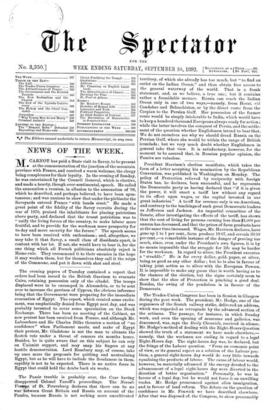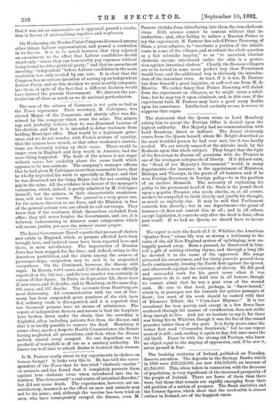The Trades-Union Congress has been in Session in Glasgow during
the past week. The president, Mr. Hodge, one of the organisers of the Scotch railway strike, delivered an address, which was regarded as retrograde by the advanced section of the artisans. The passage, for instance, in which Sunday work, and even the opening of museums and galleries, was denounced, was, says the Daily Chronicle, received in silence. Mr. Hodge's method of dealing with the Eight-Hours Question showed the truth of a statement we have made elsewhere,— namely, that the workmen are cooling in regard to a legal Eight-Hours day. The eight-hours day was, be declared, but the fringe of the Labour question. "From an economic point of view, or its general aspect as a solution of the Labour pro- blem, a general eight-hours day would do very little towards equalising the products of labour. The cause of labour would, however, be materially advanced if the energy devoted to the advancement of a legal eight-hours day were diverted in the direction of better organisation." Personally, he was in favour of a legal day, but he would not force it on unwilling trades. Mr. Hodge pronounced against alien immigration, and in favour of land reform. The debate on the question of confidence in Mr. Fenwick we have described elsewhere. After that was disposed of, the Congress, to show presumably
that it was not as conservative as it appeared, passed a resolu- tion in favour of nationalising royalties and wayleaves.



































